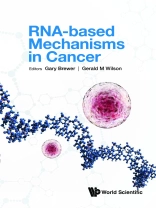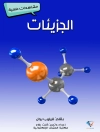The roles of gene transcription in cancer have long been appreciated. However, posttranscriptional processes also contribute significantly to alterations in gene expression that lead to tumor initiation, formation, and progression.
We have known for decades that alterations in the expression of key genes, such as those involved in cell proliferation, signaling, apoptosis, and immune responses, are major molecular events in cancer. This book presents our current understanding of selected posttranscriptional control mechanisms and the RNAs that they regulate. Each chapter provides an overview of a specific RNA-directed regulatory system and the RNA/protein factors involved, then discusses major findings in the field and their relationships to the development and/or treatment of cancer and associated diseases. Future questions serve to address ‘where do we go from here’ and stimulate the reader’s thinking about these important problems.
This compendium of chapters from experts in the field is essential reading for anyone interested in the myriad ways that RNAs contribute to tumorigenesis: from graduate students, researchers, and clinical scientists interested in m RNA processing and translation, RNA-binding proteins that promote turnover/stability of specific m RNAs, how small noncoding RNAs control inflammation and signaling, roles of the epitranscriptome, and future and emerging RNA-based, anti-tumor therapeutics.
Contents:
- Introduction to RNA and Cancer (Gary Brewer and Gerald M Wilson)
- Aberrant RNA Splicing and Therapeutic Reprogramming in Cancer (Nathan K Leclair, Brittany L Angarola, and Olga Anczukow)
- Alternative 3′-RNA Processing in Cancer (Chioniso Patience Masamha)
- Tandem CCCH Zinc Finger RNA-Binding Proteins and Their Roles in Tumor Progression (Megan B Stemberger, Nina C Lee, and Gerald M Wilson)
- Roles of the Hu/ELAV Family of m RNA-Stabilizing Proteins in Tumor Development(Cyril Sobolewski, Sahida Afroz, Samantha Z Brown, Jonathan R Brody, and Dan A Dixon)
- Pro- and Anti-Tumorigenic Activities of the RNA-binding Protein AUF1 (Nina C Lee and Gerald M Wilson)
- Oncogenic Consequences of Dysregulated Translation Initiation (Forum Kayastha, Bandish Kapadia, and Ronald Gartenhaus)
- The m TOR Complexes: Coordinating Metabolism and Translation (Nikhil Patel and Estela Jacinto)
- Therapeutic Potential of Inhibiting m TOR Signaling in Neoplasia (Predrag Jovanovic and Ivan Topisirovic)
- Roles of Micro RNAs in Hematologic Malignancies (Min Jung Kim, Christian Eberly, and Curt I Civin)
- Long Noncoding RNAs in Inflammation, Cancer, and in Cancer Therapy (Rachel L Price, Avisankar Chini, Arunoday Bhan, and Subhrangsu S Mandal)
- The Epitranscriptome and Cancer (J David Rawn and Gerald M Wilson)
- mi RNA-based Therapeutic Strategies (Sumit Biswas and Lakshmi Menon)
Readership: Graduate students, researchers, and clinical scientists in the fields of RNA biology, non-coding RNAs, and cancer research/oncology.
Key Features:
- With the Covid-19 pandemic, caused by the RNA virus SARS-Co V-2, together with the recently available, RNA-based vaccines against Co V-2, RNA has drawn significant media and societal attention worldwide
- Numerous types of RNAs play unique roles in cancer, and this book serves to draw attention to their importance
- Most chapters describe unique types of RNA-based gene regulation and their roles in cancer specifically; other chapters cover m TOR signaling, a major pathway in many cancers
- All chapters are written by established, eminent scientists or newly emerging scientists, all experts in their fields












